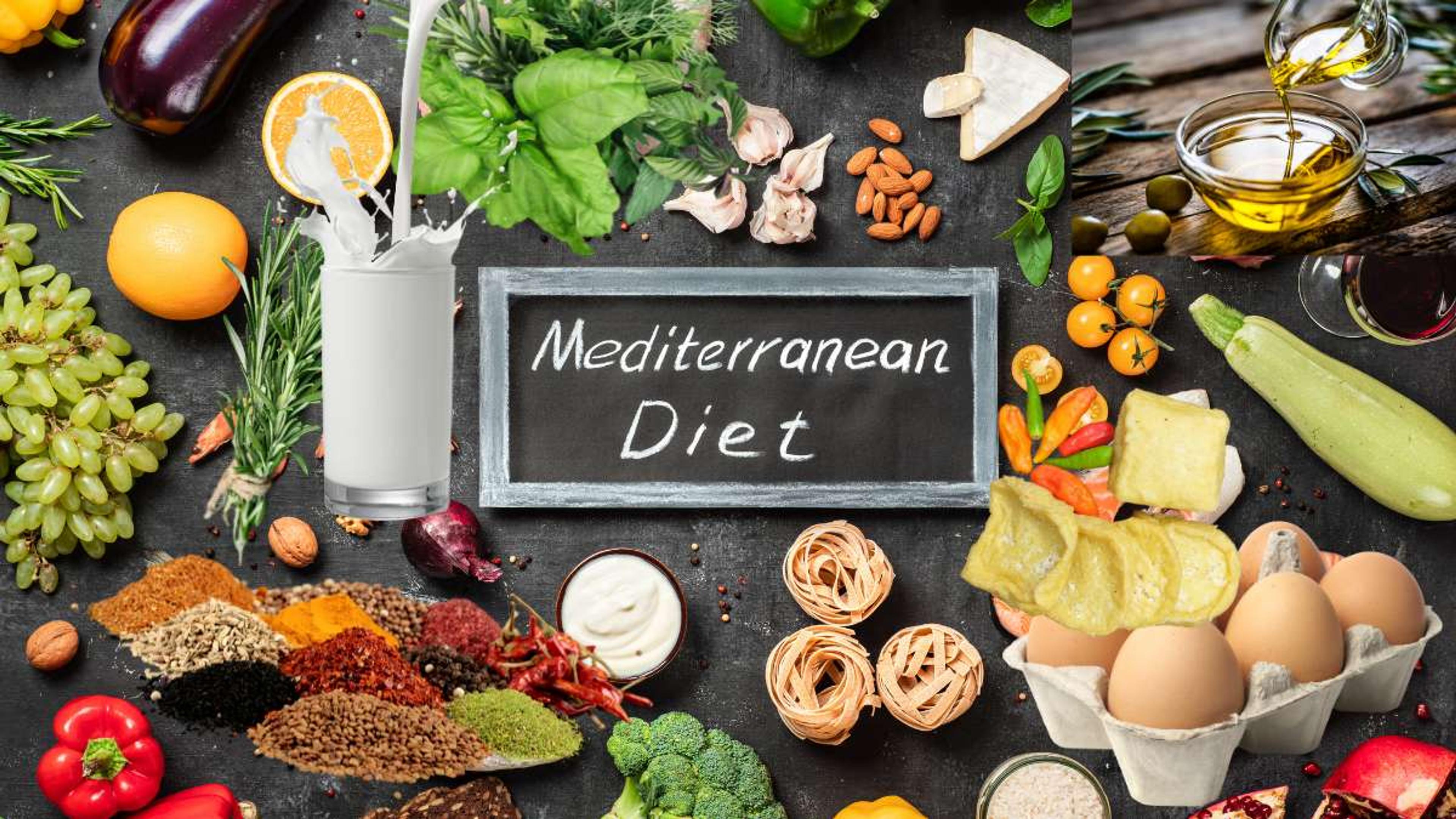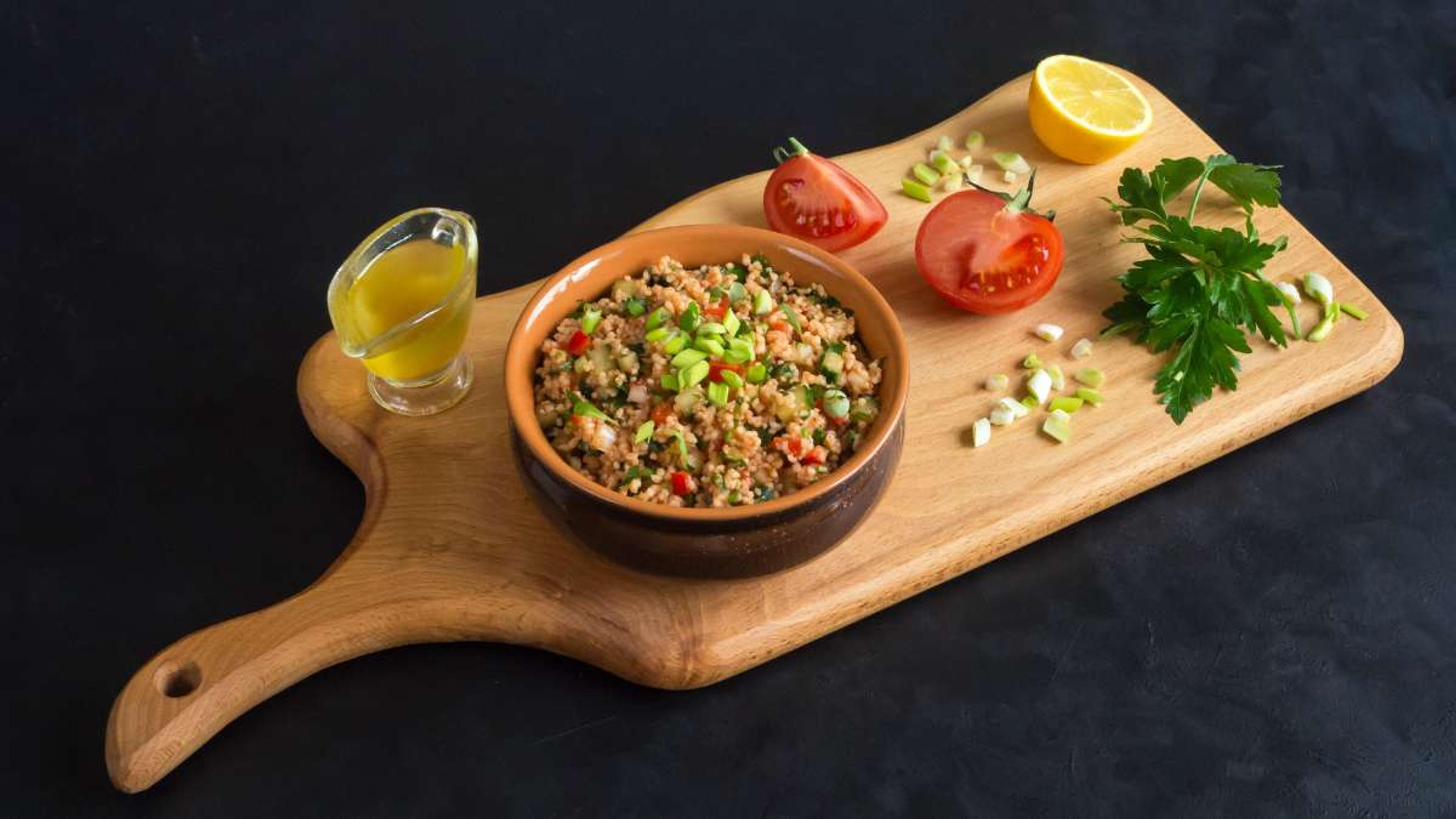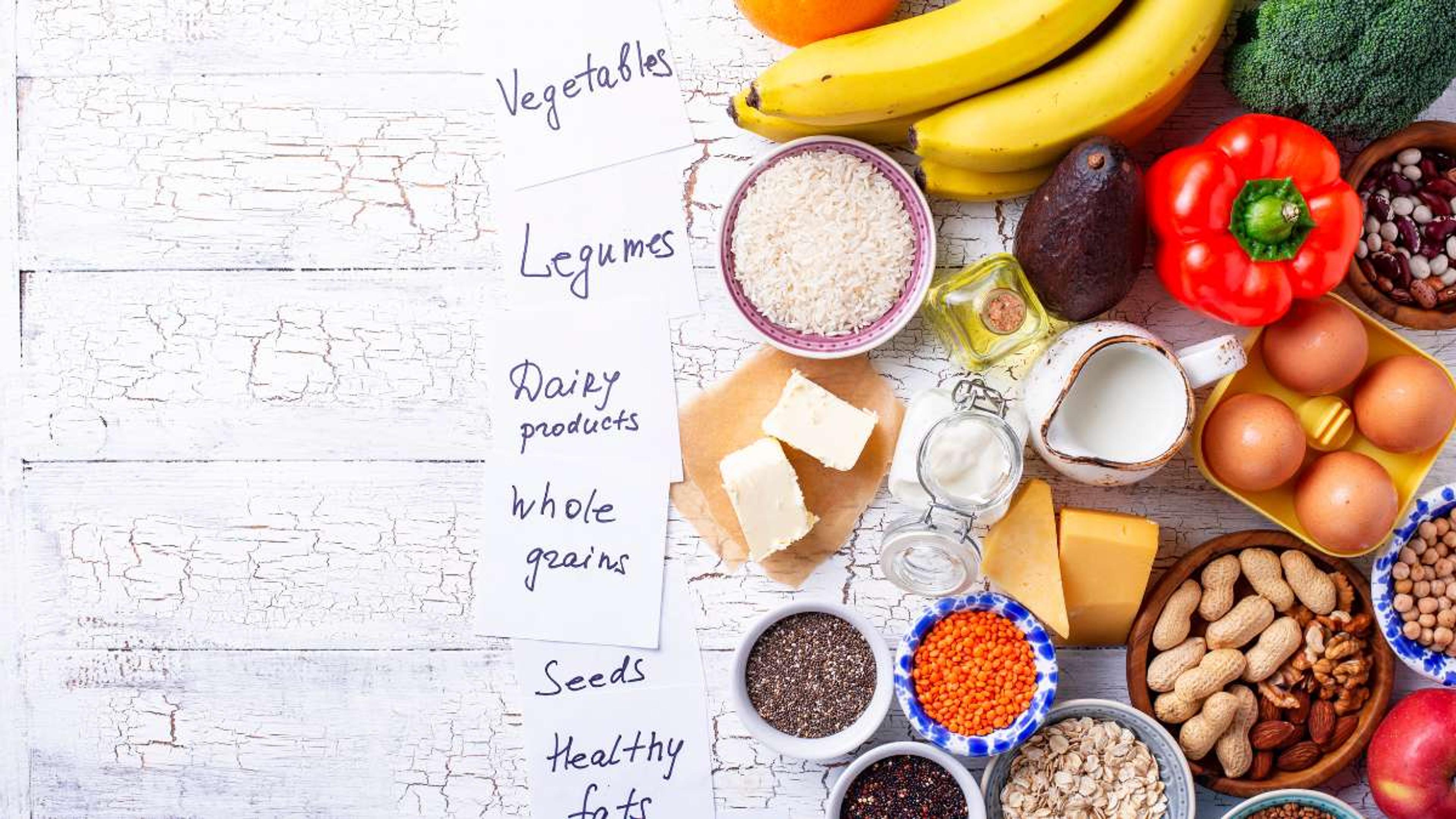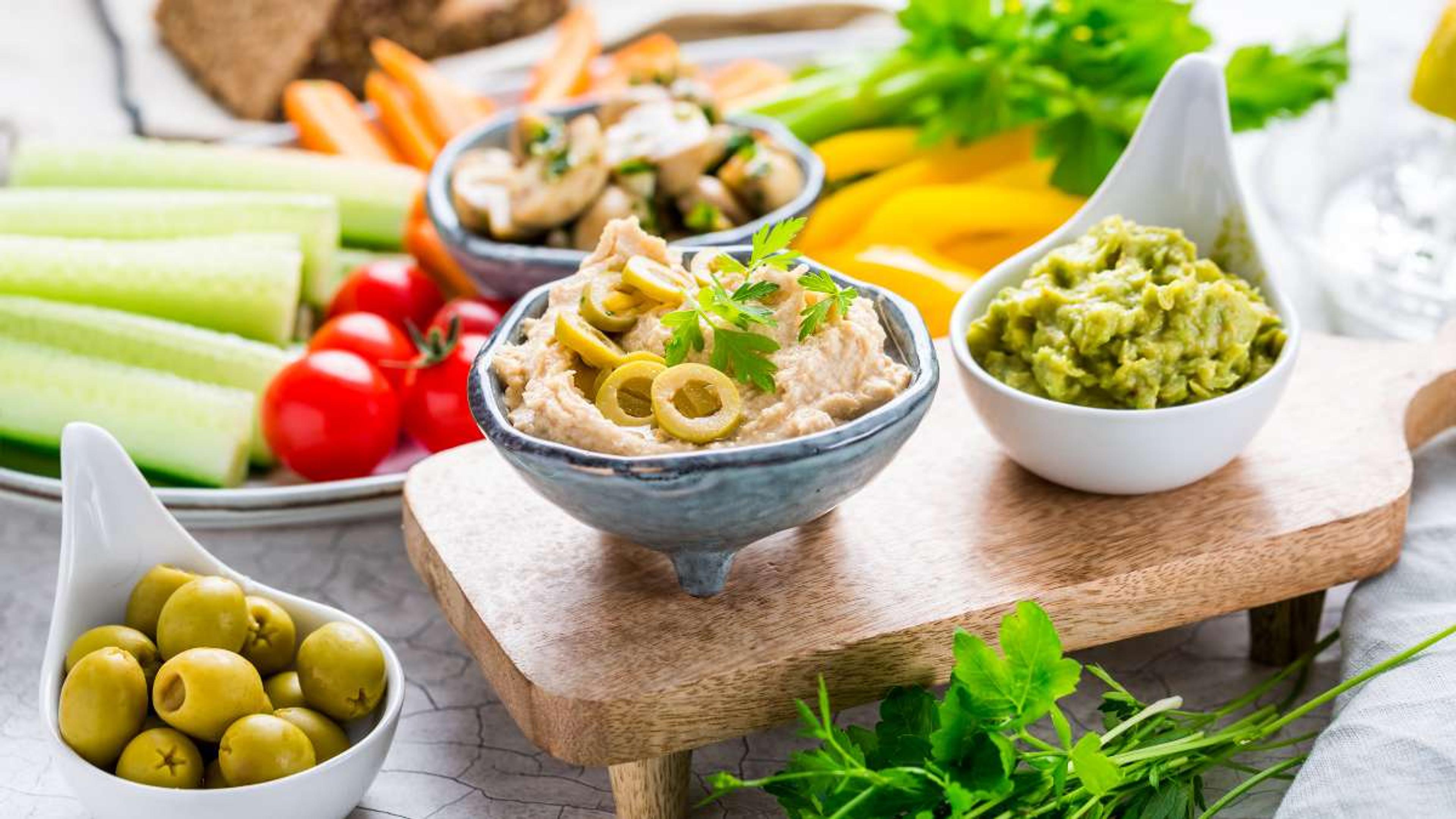Mastering The Vegetarian Mediterranean Diet

- Key Takeaways
- Origins and principles of the Mediterranean Diet
- Emphasis on plant-based foods and vegetarian adaptations
- Core Components of the Vegetarian Mediterranean Diet
- Health Benefits and Challenges of a Vegetarian Mediterranean Diet
- Vegetarian Mediterranean Meal Ideas and Recipes
- Personalizing the Vegetarian Mediterranean Diet
- Conclusion
- FAQs
Are you searching for a healthy and delicious way to nourish your body? Look no further than the Vegetarian Mediterranean Diet. Originating from the shores of Greece, Italy, and Spain, this plant-based eating plan is designed to promote overall well-being.
Ready to embark on a culinary journey that will tantalize your taste buds? Let's dive into the world of the Vegetarian Mediterranean Diet!
Key Takeaways
- The Mediterranean Diet is not just a way of eating; it's a lifestyle.
- The Vegetarian Mediterranean Diet is a plant-based eating plan that promotes overall well-being.
- The diet focuses on fruits, vegetables, whole grains, legumes, and nuts as core components.
- Olive oil is the primary source of healthy fats in this diet, while herbs and spices are used to enhance flavor.
- Following a vegetarian Mediterranean diet can provide numerous health benefits like reducing the risk of chronic diseases.
Origins and principles of the Mediterranean Diet
The Mediterranean Diet first started in Greece and South Italy around the early 1960s and follow how people eat who live near the Mediterranean Sea. The Mediterranean Diet is not just a way of eating; it's a lifestyle.
Rooted in ancient traditions, it emphasizes fresh, natural foods, social connections, and a balanced approach to life. Numerous studies have shown its benefits for heart health, weight management, and even longevity leading to a healthier, more fulfilling life.
It has a big focus on fresh fruits, vegetables, nuts, legumes, and whole grains. People who follow this diet use olive oil as their primary source of fat instead of butter and other saturated fats. Instead of using salt to add flavor to food, they use herbs and spices such as basil, rosemary and garlic.
A Mediterranean diet involves the consumption of lean proteins in moderation. For example, fish and poultry are consumed in moderate amounts, while red meat is limited. However, the vegetarian Mediterranean diet excludes fish, seafood and poultry, while dairy products are consumed in moderation.
This diet also values mealtime as a time to enjoy with friends and family. Also important are good exercise habits for health benefits such as lower risks of heart disease or diabetes. The Mediterranean Diet even helps boost mood which can lower risk for depression!

Emphasis on plant-based foods and vegetarian adaptations
The Vegetarian Mediterranean Diet puts a big focus on plant-based foods. This diet is full of veggies, fruits, and whole grains. It also includes legumes and nuts. These are all great meat-free protein sources.
Unsaturated fats like olive oil also play an important part in this diet. Following this diet can lead to lower chances of getting some health problems. More people now want to eat less meat and more plants for their health.
Core Components of the Vegetarian Mediterranean Diet
The Vegetarian Mediterranean Diet combines the principles of the traditional Mediterranean Diet with vegetarianism. It emphasizes plant-based foods while excluding meat and, in some cases, other animal products. Here are the core components:

- Vegetables and Fruits: These are the cornerstone of the diet. A wide variety of colorful vegetables and fruits are consumed daily, providing essential vitamins, minerals, and antioxidants. Examples include tomatoes, eggplants, bell peppers, oranges, and figs.
- Whole Grains: Instead of refined grains, the diet emphasizes whole grains like quinoa, barley, whole wheat pasta, and brown rice. These grains are rich in fiber, which aids digestion and provides a steady source of energy.
- Legumes: Beans, lentils, chickpeas, and other legumes are primary protein sources in the vegetarian Mediterranean diet. They're not only rich in protein but also in fiber, iron, and other essential nutrients.
- Nuts and Seeds: Almonds, walnuts, flaxseeds, and sesame seeds are regularly incorporated into meals. They provide healthy fats, protein, and various beneficial compounds.
- Olive Oil: As with the traditional Mediterranean Diet, olive oil is the primary fat source. It's used for cooking, dressing salads, and even as a dip for bread. Rich in monounsaturated fats, it's known for its heart-healthy properties.
- Dairy or Dairy Alternatives: While some vegetarians consume dairy products like yogurt, cheese, and milk, others opt for plant-based alternatives made from soy, almonds, or oats. These alternatives can be fortified with calcium and vitamin D.
- Eggs: Depending on individual preferences, eggs might be included as a protein source. They're versatile and can be used in various dishes.
- Herbs and Spices: Fresh and dried herbs like basil, oregano, and rosemary, along with spices like turmeric and saffron, are used generously to flavor dishes without relying on excessive salt.
- Wine: Some adherents of the Vegetarian Mediterranean Diet choose to consume wine in moderation, especially red wine, which contains antioxidants.
- Limiting Processed Foods: Processed foods, refined sugars, and unhealthy fats are minimized. Instead, the focus is on fresh, whole foods.
- Physical Activity: Just as with the traditional Mediterranean lifestyle, physical activity is encouraged. Whether it's walking, gardening, or more structured exercises, staying active is an integral part of this lifestyle.
- Social Connections: Sharing meals with family and friends, fostering community connections, and valuing mealtime as a bonding experience are all emphasized.
In essence, the Vegetarian Mediterranean Diet is a fusion of two health-promoting lifestyles. It offers the benefits of a plant-based diet while retaining the heart-healthy principles of the Mediterranean approach. Adopting this diet can lead to improved heart health, better weight management, and overall well-being.
Health Benefits and Challenges of a Vegetarian Mediterranean Diet
A vegetarian Mediterranean diet offers many health benefits. It is good for your heart and can help lower the risk of chronic diseases with healthy longevity. This diet focuses on plant-based foods like fruits, vegetables, whole grains, legumes, and nuts. High fiber content helps with weight management, promotes healthy bowel movements and can prevent constipation leading to improved digestion.
These foods are full of vitamins, minerals, and fiber that can keep you healthy. The Mediterranean diet also includes olive oil as a healthy fat source. It has been shown to improve cholesterol levels and reduce inflammation in the body.
However, there may be some challenges when following a vegetarian Mediterranean diet. One challenge is getting enough protein without meat. Plant-based protein sources like legumes and nuts can help meet this need, but it requires careful planning to ensure you get all the essential amino acids your body needs.
Another challenge is ensuring adequate intake of certain nutrients found in animal products like dairy for calcium and vitamin D. However, there are vegetarian alternatives available like fortified plant-based milks or supplements if needed.
In conclusion, while the Vegetarian Mediterranean Diet offers numerous health benefits, it's essential to be aware of its challenges. Proper planning, education, and occasionally supplementing can help overcome potential nutritional gaps. As with any diet, it's advisable to consult with a nutritionist or healthcare provider to ensure individual dietary needs are met.
Vegetarian Mediterranean Meal Ideas and Recipes
Discover a variety of delicious and healthy meal ideas inspired by the Mediterranean diet, such as breakfast smoothie bowls, quinoa salads for lunch, flavorful one-pot vegetable stews for dinner, and homemade cilantro jalapeno hummus as a tasty snack option.

Breakfast, lunch, dinner, and snack suggestions
Breakfast:
- Start your day with a bowl of Greek yogurt topped with fresh fruits like berries or sliced banana.
- Enjoy a slice of whole grain toast drizzled with extra virgin olive oil and sprinkled with herbs like thyme or basil.
- Make a vegetable omelette using peppers, onions, tomatoes, and spinach.
Lunch:
- Have a tasty salad filled with leafy greens like kale or arugula, topped with cherry tomatoes, cucumbers, olives, and feta cheese. Dress it with a simple olive oil and lemon juice vinaigrette.
- Prepare a grilled vegetable wrap using zucchini, eggplant, bell peppers, and hummus.
- Enjoy a hearty lentil soup loaded with vegetables like carrots, celery, and potatoes.
Dinner:
- Make a Mediterranean-style pasta dish using whole wheat spaghetti tossed in olive oil with roasted red peppers, sun-dried tomatoes, and black olives.
- Create a flavorful chickpea stew by simmering chickpeas with onions, garlic, diced tomatoes, and spices like cumin and paprika. Serve it over quinoa or brown rice.
- Grill some marinated tofu skewers along with an assortment of vegetables like bell peppers and mushrooms.
Snacks:
- Snack on raw almonds or walnuts for a dose of healthy fats.
- Enjoy carrot sticks or sliced bell peppers dipped in homemade tzatziki sauce made from Greek yogurt and grated cucumber or cilantro jalapeño hummus.
- Spread tahini on whole grain crackers or pita bread for a filling snack option.
Incorporation of traditional Mediterranean dishes with vegetarian twists
Traditional Mediterranean dishes can be easily adapted to be vegetarian-friendly. Here are some ways to incorporate vegetarian twists into these classic recipes:
- Eggplant Parmesan made with breaded and baked eggplant slices instead of meat.
- Greek salad with tofu feta cheese made from crumbled tofu marinated in lemon juice and herbs.
- Vegetable Paella packed with colorful veggies like bell peppers, tomatoes, and artichoke hearts.
- Lentil Bolognese using cooked lentils as a substitute for ground meat in the classic Italian sauce.
- Stuffed peppers filled with a mixture of quinoa, vegetables, and spices instead of ground beef or rice.
- Chickpea Tabbouleh salad adding protein-rich chickpeas to the traditional bulgur wheat, parsley, and tomato dish.
- Vegan Spanakopita made by swapping the feta cheese for tofu or nutritional yeast in the spinach and phyllo pastry dish.
- Cauliflower Shawarma using roasted cauliflower florets flavored with Middle Eastern spices like cumin, paprika, and turmeric.
One-pot vegetarian Mediterranean dinners
One-pot vegetarian Mediterranean dinners are easy and delicious options for people following the Vegetarian Mediterranean Diet. They save time and effort by allowing you to cook your entire meal in one pot. Here are some ideas for these flavorful and nutritious dinners:
- Mediterranean quinoa skillet: A quick and easy option that combines protein-rich quinoa, colorful vegetables like bell peppers and zucchini, and aromatic herbs and spices.
- Stuffed eggplant: A hearty dish where roasted eggplants are filled with a mixture of rice, tomatoes, onions, and herbs like basil and thyme.
- Chickpea stew: A comforting stew made with chickpeas, tomatoes, onions, garlic, and a blend of warm spices like cumin, coriander, and paprika.
- Lentil curry: A flavorful curry made with lentils, fragrant spices like turmeric and cumin, tomatoes, onions, and coconut milk.
- Pasta primavera: A pasta dish loaded with seasonal vegetables like broccoli, bell peppers, spinach, and cherry tomatoes, tossed in olive oil and seasoned with fresh herbs.
More Mediterranean-inspired recipe recommendations
- Try a refreshing Greek salad with juicy tomatoes, crisp cucumbers, tangy feta cheese, and a drizzle of extra virgin olive oil.
- Make a flavorful pasta dish by tossing whole wheat spaghetti with sautéed garlic, cherry tomatoes, olives, and fresh basil.
- Enjoy a nourishing chickpea stew with carrots, celery, onions, and spices like cumin and paprika for a Mediterranean twist.
- Indulge in a hearty vegetable moussaka with layers of roasted eggplant, zucchini, potatoes, and a creamy béchamel sauce.
- Create a satisfying mezze platter with homemade hummus, grilled pita bread, marinated olives, and roasted red pepper dip.
- Whip up a delicious Mediterranean-inspired grain bowl with quinoa or bulgur topped with roasted vegetables and your favorite herbs.
- Delight in a colorful vegetable paella made with saffron-infused rice and an abundance of seasonal veggies like bell peppers and peas.
- Savor the flavors of Italy by baking a homemade margherita pizza on whole wheat crust topped with fresh tomatoes, basil leaves, and mozzarella cheese.
- Treat yourself to mouthwatering falafel wraps stuffed with crispy chickpea patties, diced tomatoes, cucumber slices, tahini sauce, and fresh parsley.
Personalizing the Vegetarian Mediterranean Diet
Individuals can personalize the Vegetarian Mediterranean Diet by adjusting it based on their own needs and preferences, incorporating local and seasonal produce, balancing calorie intake with activity levels, and infusing Mediterranean flavors and herbs into their meals.

Adjusting the diet based on individual needs and preferences
The great thing about the Vegetarian Mediterranean Diet is that it can be adjusted to suit your own needs and preferences. Whether you have certain dietary restrictions or just prefer certain foods, you have the freedom to make it work for you.
By incorporating local and seasonal produce, balancing calorie intake with activity levels, and adding in your favorite Mediterranean flavors and herbs, you can create a personalized version of this healthy diet.
It's all about finding what works best for you so that you can enjoy the benefits of the Mediterranean way of eating while still staying true to your individual tastes and preferences.
Incorporating local and seasonal produce
The Vegetarian Mediterranean Diet encourages incorporating local and seasonal produce into your meals. By using fresh fruits, vegetables, and herbs that are in season, you can enjoy the fullest flavors and nutritional benefits of these ingredients.
Not only does this support local farmers and reduce environmental impact, but it also ensures that you're getting the freshest and most nutrient-dense foods possible. Plus, seasonal produce typically costs less than imported or out-of-season options.
So next time you're planning a vegetarian Mediterranean meal, head to your local farmer's market or grocery store to stock up on delicious seasonal veggies like colorful bell peppers, juicy tomatoes, leafy greens like spinach or kale, and vibrant herbs like basil or thyme!
Balancing calorie intake with activity levels
To maintain a healthy weight, it's important to balance the amount of calories you consume with the amount of physical activity you do. This is true for any type of diet, including the Vegetarian Mediterranean Diet.
If you eat more calories than your body needs and don't burn them off through exercise or other activities, they can be stored as fat and lead to weight gain. On the other hand, if you're not consuming enough calories to meet your energy needs, your body may start breaking down muscle tissue for fuel.
To find the right balance, it's recommended to pay attention to portion sizes and make sure that you're getting enough nutrients from a variety of plant-based foods. Regular physical activity is also important for maintaining overall health and can help burn extra calories.
Incorporating Mediterranean flavors and herbs
The Mediterranean diet is renowned for its use of flavorful herbs and spices. Incorporating these Mediterranean flavors into your meals can add depth and complexity to your dishes, while also providing potential health benefits.
Some popular herbs used in the Mediterranean diet include basil, thyme, oregano, rosemary, and parsley. These herbs not only enhance the taste of your food but also offer antioxidant properties that may help protect against chronic diseases.
Additionally, the use of fresh lemon juice adds a bright and tangy flavor to many Mediterranean dishes. By incorporating these delicious flavors into your cooking, you can elevate your vegetarian Mediterranean meals to new heights while reaping the nutritional rewards.
Conclusion
In conclusion, the Vegetarian Mediterranean Diet offers a flavorful and nutritious approach to eating. By focusing on plant-based foods like fruits, vegetables, whole grains, legumes, and nuts, this diet provides essential nutrients while reducing the consumption of animal products.
With its emphasis on local and seasonal ingredients and the use of herbs and spices for flavor, the Vegetarian Mediterranean Diet can be personalized to suit individual preferences and support a healthy lifestyle.
FAQs
1. What foods are included in a vegetarian Mediterranean diet?
A vegetarian Mediterranean diet includes fruits, vegetables, whole grains, legumes, nuts, seeds, and healthy fats like olive oil.
2. Can I get enough protein on a vegetarian Mediterranean diet?
Yes, a well-planned vegetarian Mediterranean diet can provide sufficient protein through sources like legumes (beans and lentils), tofu, tempeh, and Greek yogurt.
3. Is it easy to follow a vegetarian Mediterranean diet?
Yes, following a vegetarian Mediterranean diet can be relatively easy as it allows for a variety of delicious plant-based foods and doesn't require strict calorie counting or portion control.
4. What are the health benefits of following a vegetarian Mediterranean diet?
Following a vegetarian Mediterranean diet has been associated with numerous health benefits including reduced risk of heart disease, lower cholesterol levels, improved weight management, and increased intake of vitamins and minerals from plant-based foods.

